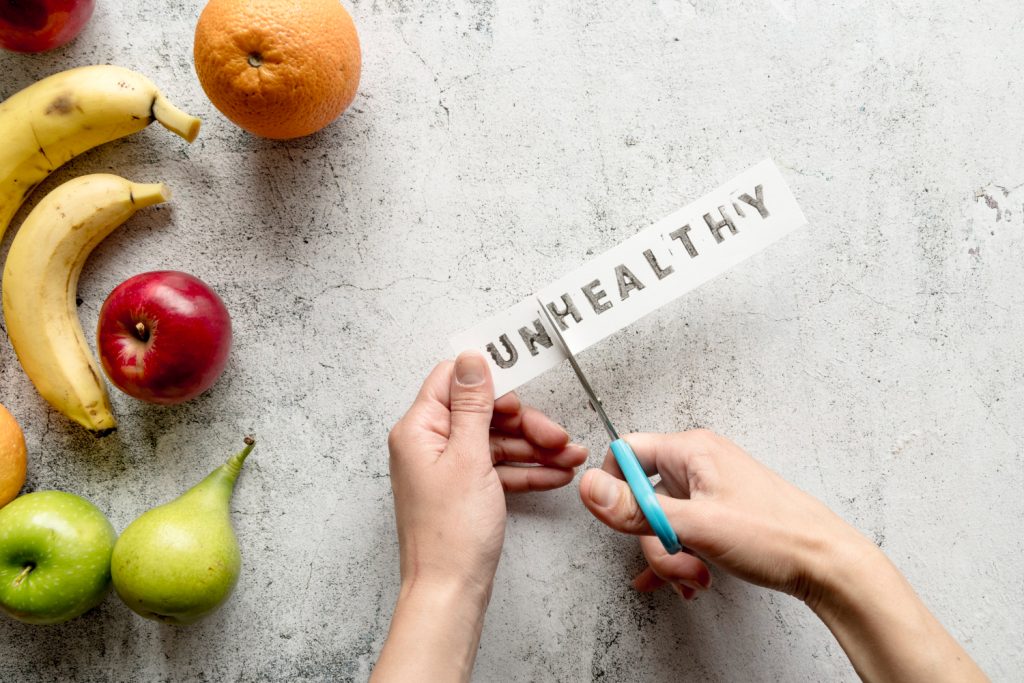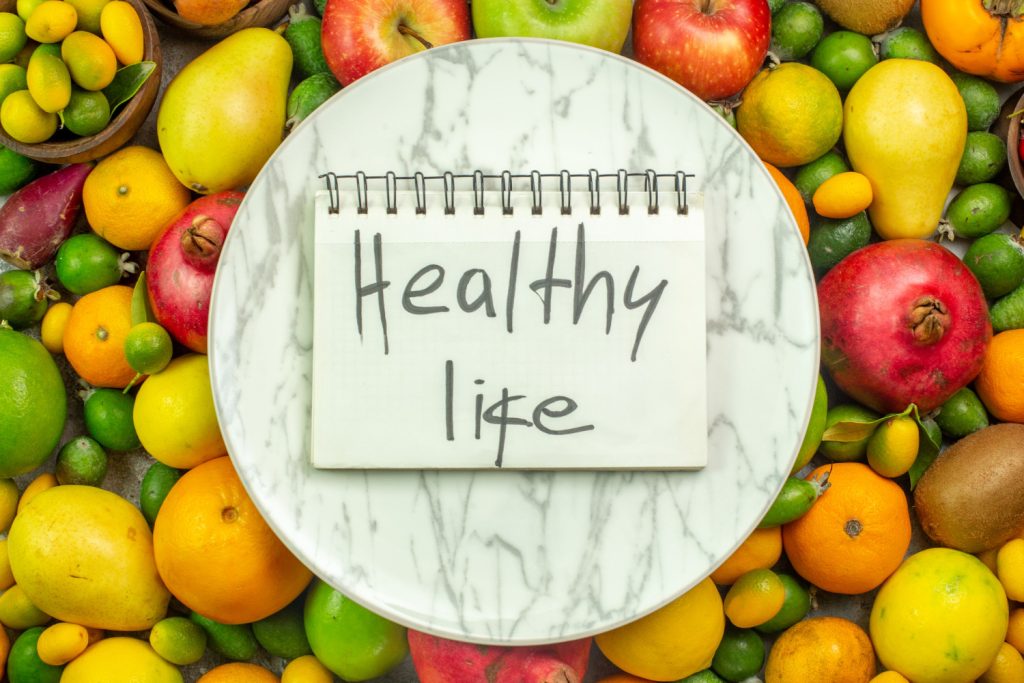What nourishes your body nourishes your mind and your spirit.
If you struggle with depression, then you experience severe symptoms for weeks, months, or even years, such as intense fatigue, feeling hopeless, and lack of interest in anything, and you tend to avoid things and people that may have brought joy to your life in the past.
It is also very likely that as a result of your negative psychology, your diet, and sleep are affected at times, i.e. you lose or gain a lot of weight, sleep too much, or hardly at all.
Your continuous “black” thoughts may also sometimes lead you to extreme, self-destructive behaviors. The feeling of emptiness, like a heavy cloud, seems to weigh down your mind and heart.
You are not the only one.
The rates of depression, globally, have broken all records during the years of crisis and quarantine.
According to the World Health Organization, depression affects 5% of the population worldwide, and Greece occupies, together with Portugal, the 4th place, with a percentage of 5.7% of the general population.
Depression is a serious mental disorder, which is treated with counseling, medication, and in the most difficult cases, hospitalization.
Also, you are not alone.
If you are living this difficult, almost unbearable, psychological condition, you should never be alone, but ask for and receive the help you need, to feel better again, as you deserve.
An important ally in this unequal battle turns out to be your daily diet, which boosts not only your body but also your mind and soul in ways you’ve never even imagined or combined.
In fact, in recent years, nutrition is considered to be such a key factor for mental health that it “gave birth” to a new field of Psychiatry, Nutritional Psychiatry.
Nutritional Psychiatry takes seriously how foods regulate stress and mood levels and therefore prioritizes changing eating habits and lifestyle as the most natural way to deal with depressive symptoms.
Does the hen make the egg or the egg makes the hen?
Food, so important to your body, turns out to be just as valuable to your mind. It directly affects the way you think about everything, and ultimately you perceive the meaning – or no meaning – of your life.
Today there is a heated debate about whether a poor diet can cause depression or whether depression creates a bad habit, such as a poor diet.
It is known, after all, how bad nutrition and large weight gain create a bad body image and feelings of guilt, shame, and low self-esteem.
Maybe you also have some bad eating habits that “relieve” you or “numb” you for a while, but ultimately create all these awful feelings in you in the long run.
Soul and body
By knowing how much food creates your thoughts and feelings, you will fully understand why you are and feel what you eat.
As the Harvard Health Blog says in its article your brain works 24 hours a day. Even when you sleep, it does not stop taking care of your breath, your heartbeat, your thoughts, and your movements. Think of your brain as the engine of your car. For it to always function properly, it is required that you constantly supply it with high-quality fuel, that is, with high-quality food.
The mental illness of depression, in addition to genetic factors and environmental effects, is thought to arise as a chemical imbalance in your brain.
Neurotransmitters are chemicals that bridge the distances of your brain’s billions of nerves. Their balance is valuable because they contribute to how you perceive the world.
Did you know that a very important neurotransmitter is serotonin which is 95% produced in your gastrointestinal system, commonly in your gut?
Rightly so, the gut is considered to be your second brain. Trillions of bacteria inside it send messages to your brain, producing those precious neurotransmitters that regulate important things like your sleep and mood. Good bacteria reduce the chance of inflammation and improve the way your body absorbs nutrients from food. It is thought that more than 70% of your immune system acids are in the gut.
That is why, according to Hippocrates, the ancient Greek physician, and e founder of modern medicine, “every disease begins in the intestine”. Hippocrates (460-370 BC) said many things in his time that we are now just beginning to understand. Perhaps this is why, worldwide, all doctors take the sacred “Hippocratic Oath”.
When you feed yourself with nutrients, you maintain a healthy balance of the gut microbiome and thus receive positive messages to the brain. When you eat poorly (processed food, high in saturated fat, sugary drinks), you disrupt the natural functioning of your gut resulting in inflammation and oxidative stress (excessive production of free radicals), which seriously threaten both your healthy cells and mental health. your mood.
Learn more about how the gut microbiome is linked to depression and anxiety in this recent article by CAS, a research division of the American Chemical Society that advances scientific knowledge.
Discover the happiness of food
If you want to have a healthy brain, a generator of positive thoughts and emotions, choose for your daily diet happy foods and relaxing drinks, which have the power, with their taste and good energy, to expel the black cloud of depression from your life:
- Fatty Fish: tasty fatty fish, such as tuna and salmon, contain valuable omega-3 fatty acids, which contribute to the proper functioning of your brain, and prove to be powerful allies in dealing with your depression symptoms. It has been shown in research that in countries where the population consumes more oily fish, there is a lower risk of depression. So, make sure you enjoy them regularly.
- Bananas: these lovely yellow fruits contain important amino acids, such as Tryptophan and Tyrosine. The amino acid Tryptophan produces the neurotransmitter serotonin, which contributes to your good mood and well-being, as well as melatonin, the relaxation hormone that helps you sleep well. The amino acid Tyrosine produces the neurotransmitters dopamine, adrenaline, and noradrenaline that naturally increase your mental and physical performance. Serotonin and dopamine are also called mood hormones. So, a banana a day and bad psychology goes away!
- Nuts & seeds: they contain precious magnesium, which enhances the good functioning of your nervous system, thus fighting anxiety and depression. The lack of magnesium itself, which is not produced by your body, can create mood disorders and fatigue. Add nuts and seeds to your diet and you will be in a much better mood!
- Oranges, but also broccoli: Your body can only synthesize vitamin E by itself, so protect it with lots of fruits and vegetables! In particular, Vitamin C, with its antioxidant properties, lifts your mood and contributes to your healthy sexuality. You will find it abundantly in oranges, strawberries, kiwis, broccoli, and cabbage.
- Mushrooms: do you know what you as a human being have in common with mushrooms? Every time you enjoy the warm rays of the sun, you produce vitamin D in your body, also called the “sunshine vitamin”. The same thing happens with mushrooms. They produce vitamin D when exposed to the sun. Vitamin D is very important because it produces serotonin which is responsible for your good mood, and it is abundant in mushrooms! Taste them and feel the sun inside you!
- Dark chocolate: according to the University College London research which took place in London in 2019: «people who eat dark chocolate are less likely to suffer from depression». Dark chocolate contains flavanols and nutrients with powerful antioxidant properties. Enjoy it, guilt-free, because it’s good for your mood.
- Legumes: chickpeas, lentils, fava beans, kidney beans, and beans, in addition to other nutrients, are a rich source of fiber. According to a new study, fiber especially reduces the risk of depression in premenopausal women. But just as depression has no gender, so fiber fights depression in both sexes.
- Probiotics: fermented foods such as kefir, yogurt, and yeast bread are called probiotics. Probiotics are beneficial bacteria for the good functioning of your digestive system, which, as mentioned above, is your second brain. So keep probiotics in mind!
- Red meat: eating red meat will give you creatine, which until now has been more associated with muscle building in athletes. Creatine is an organic acid that keeps brain energy high, and in recent years has been thought to combat the symptoms of depression. Red meat boosts your energy and mood.
- Cocoa: Cocoa contains two active substances directly linked to joy and excitement: phenylethylamine and anandamide, two active substances directly linked to joy and excitement, both of which are contained in cocoa. We don’t know if you had the habit of drinking cocoa when you were little, but it seems that if you put cocoa back into your life, there’s a good chance you’ll feel the joy of a child again.
- Green tea: in 1949 the Japanese first discovered L-theanine in green tea leaves. L-theanine is a natural non-protein amino acid (gamma glutamylethylamide), known for its contribution to the treatment of diseases such as dementia and Alzheimer’s, thanks to its neuroprotective effect. Recently, it has also been proven to have a calming effect on stress and depression. Introduce the green tea habit into your life. It will calm you down, warm you up and invigorate you.
- St. John’s wort: The quintessentially Greek herb, St. John’s wort contains two substances, hypericin and hyperforin. The two miracle substances drastically increase serotonin and adrenaline in the brain. Our favorite St. John’s wort is considered by many to be the herb with the most relaxing effect on your body. Drink it, it’s a balm!
The benefits of the Mediterranean Diet
Until recently we knew that the Mediterranean Diet contributes to well-being and longevity. After studies, we now know that people who follow the Mediterranean Diet are 33% less likely to experience symptoms of depression. Fruits, vegetables, fish, nuts, olive oil, and dairy products which form the core of the Mediterranean Diet, not only contribute to your longevity, but also to your well-being, which starts deep within you.
This was also shown in the most recent study by the University of Sydney, published in the American Journal of Clinical Nutrition, a 12-week study involving only young men aged 18-25.
Holistic treatment of depression, from the inside
There is still much to discover about how foods contribute to your mental health.
Think of your body as the wise guide that gives important information to your soul. It gets you out of bed, energizes you, fills you with senses, and ignites you with thoughts and feelings.
Protect it, with foods that keep it happy, and full of good energy.
Pay attention to what you eat, but also to how what you eat makes you feel. In this way, by “listening” to your emotions, you will create the ideal diet for you, the one that makes you feel well-being, and why not happiness!
If you want to learn more about how food for your body can become food for your mind, learn more about Holistic Health Coaching.
Today, every physical or mental problem is treated holistically, because this is the most complete way to feel good, lasting, in your body, mind, and soul.
You are not the only one. You are not alone. You are not weak. You are not a black cloud.
Together we will find new food, new thinking, and new feelings, creating for you the most powerful allies, for life, from within.
Our service works in addition to the psychiatric support and treatment you may be following to deal with depression.

